This article needs additional citations for verification. (December 2014) (Learn how and when to remove this template message) |
Extreme Prejudice is a 1987 American neo-western action film starring Nick Nolte and Powers Boothe, with a supporting cast including Michael Ironside, María Conchita Alonso, Rip Torn, William Forsythe, and Clancy Brown.
| Extreme Prejudice | |
|---|---|
Theatrical film poster | |
| Directed by | Walter Hill |
| Produced by | Buzz Feitshans |
| Screenplay by | Deric Washburn Harry Kleiner |
| Story by | John Milius Fred Rexer |
| Starring |
|
| Music by | Jerry Goldsmith |
| Cinematography | Matthew F. Leonetti |
| Edited by | Freeman A. Davies David Holden Billy Weber |
Production company | Carolco Pictures |
| Distributed by | TriStar Pictures |
Release date |
|
Running time | 104 minutes |
| Country | United States |
| Language | English |
| Budget | $22 million |
| Box office | $11,307,844 90,307 admissions (France) |
The film was directed by Walter Hill, with a screenplay by Harry Kleiner and Deric Washburn (the latter collaborated with Michael Cimino on Silent Running and The Deer Hunter) from a story by John Milius and Fred Rexer
Extreme Prejudice is an homage, of sorts, to The Wild Bunch, a western directed by Sam Peckinpah, with whom Hill worked on The Getaway. Both films end with a massive gunfight in a Mexican border town. The title originates from "terminate with extreme prejudice," a phrase popularized by Apocalypse Now, also written by Milius.
The lead character of Jack Benteen (Nolte) was loosely based on Joaquin Jackson. Nolte spent three weeks in Texas with Jackson learning the day-to-day activities of a Ranger. Nolte took what he learned and incorporated it into his character's the mannerisms and dress.
Screenplay
A teletype message flashes across the screen ...
- Master Sergeant Larry McRose, U.S. Army, Frankfurt, West Germany
- Report to Zombie Unit, El Paso, Texas
At the airport in El Paso, Texas, five U.S. Army sergeants meet up with Major Paul Hackett (Michael Ironside), the leader of the clandestine Zombie Unit, composed of soldiers reported to be killed-in-action and on temporary assignment under Hackett for the duration of a secret mission.
Jack Benteen (Nick Nolte) is a tough Texas Ranger. His best friend from high school is Cash Bailey (Powers Boothe), a former police informer who has crossed into Mexico and became a major drug trafficker. Bailey tries to bribe Benteen to look the other way while sending major drug shipments to the U.S. When Benteen refuses, he is left with a warning by Bailey: Look the other way, or die trying.
Benteen and his friend, Sheriff Hank Pearson (Rip Torn), end up getting in a shootout with Bailey's men at a gas station outside of town, resulting in Pearson's death. Benteen infers that Bailey set them up. Two of Bailey's men try to escape, but Hackett has them killed by not leaving any witnesses, and after they tried to steal his vehicle.
Accompanied by a DEA agent, Zombie Unit arrives in town tracking Bailey. When they attempt to rob a local bank, one soldier is killed and two others are caught and detained by Benteen. After realizing the men are listed as dead in all official records, Benteen is confronted by the D.E.A. agent spearheading the operation, who tells them him they were robbing the bank in order to get Bailey's money and a safety deposit box containing accounts on all the drug money he's deposited there. Now knowing the full story, Benteen joins with the soldiers and crosses the border into Mexico to track down Bailey and end his drug running. At Bailey's hacienda, they are joined Benteen's girlfriend Sarita, who was once Bailey's woman and has followed Benteen into Mexico.
At an Independence Day festival, Benteen confronts Bailey while the soldiers attack Bailey's private army. Hackett is witnessed shooting Bailey's accountant and, at the same time, revealing himself to be Bailey's partner, who tells one of his men there was no mission, and that they were assigned to die. The town erupts into a gunfight, which few but Benteen and Sarita survive. Hackett and his men get killed in the process. Benteen and Bailey end up in an old west-style showdown, which results in Bailey getting shot to death, rather than surrender. Bailey's right-hand man, Lupo, takes over the drug business and tells Benteen he'll do him a favor some day, while Benteen and Sarita walk away towards an uncertain future.
- Nick Nolte as Ranger Jack Benteen
- Powers Boothe as Cash Bailey
- María Conchita Alonso as Sarita Cisneros
- Rip Torn as Sheriff Hank Pearson
- John Dennis Johnston as Merv
- Marco Rodríguez as Deputy Emil Cortez
- Luis Contreras as Lupo
- Tommy "Tiny" Lister as Monday
- Mickey Jones as Chub Luke
- Thomas Rosales Jr. as Scarza
Zombie Unit
- Michael Ironside as Major Paul Hackett
- Clancy Brown as Master Sergeant Larry McRose
- William Forsythe as Sergeant 1st Class Buckman Atwater
- Matt Mulhern as Staff Sergeant Declan Patrick Coker
- Larry B. Scott as Sergeant 1st Class Charles Biddle
- Dan Tullis, Jr. as Sergeant 1st Class Luther Fry
Andrew Robinson was cast as a CIA agent acting as a liaison to Hackett, but his scenes were among those cut in order to reduce the film's runtime by 45 minutes.
Development
The film was first announced for production in 1976 with Milius to direct from his own script. "It's very complicated," said Milius. "I've never been able to put what the movie's about in a few words. All I can say is it's a modern-day story about subversion and espionage."
He elaborated in a 1976 interview saying it was "about Special Forces. It's a rightwing political thriller, a rightwing Costa-Gavras film. It takes place in Texas and involves the Texas Rangers as well. I shouldn't talk about it." However he did describe one scene:
There's an operation carried out with peak efficiency where four highly trained specialists wipe out forty men. They don't wipe them out in the usual sense, because they're so good and heroic. I wanted to give the sense that these four are more than a match for forty because they're so skilled at what they do: use of explosives, automatic weapons fire, interlocking fields of fire. Their planning is so precise and perfect: they're used to thinking this way. When you come away from this battle, you're not just impressed with their skill, but also with how cold they are. Ruthlessly efficient.
He also said there was a line in the film "where a Ranger is talking about being in a gunfight with people in a car and the other guy says, "That gun won't stop a car," and the Ranger says, "It will if you shoot it in the driver." That's a Milius line. I'm trying to get away from that; the rest of the script is very flat. I'm trying to write more mundane now. Rather than dazzle constantly, I'm trying to let the weight of the story carry it, and the more subtle implications of it, letting scenes play themselves out the way they would in reality. We'll see what happens. It's a definite development."
In an interview for the July, 1978, issue of "Crawdaddy" magazine, Milius spoke about the film as a future project, giving away the original ending. "A group of drug dealers take over a town in Texas, then finally one person, a Vietnam veteran, stands up to them and wipes them out. Then we cut to a meeting room at the Pentagon, where we find out it was all a top secret experiment to find out how far Americans can be pushed before they fight back." The film was to be made in October 1976 in Texas, but Milius instead decided to make Big Wednesday.
In 1982 the project was in the hands of Walter Hill. He assigned Larry Gross to do some work on the script before the latter did work on 48 Hours.
The project was revived in the 1980s by Carolco Pictures, then flush with money from the success of Rambo: First Blood Part II.
Jonathan Demme was linked to the project in 1985.
Then they signed Walter Hill to direct and he hired Harry Kleiner to rewrite the film. Hill had known Kleiner from the film Bullitt, on which Hill was an assistant director and Kleiner the writer; Hill was impressed by Kleiner's talent for writing and rewriting on the set daily, which he needed for this film.
Casting
The lead role was played by Nick Nolte with whom Hill had made 48 Hours. Hill:
I wanted someone who was representative of the tradition of the American West -- taciturn, stoical, enduring. Someone who carried a lot of pain with him. I told Nick, 'The kind of thing I'm talking about is Cooperesque.' I had him look at a lot of Gary Cooper films.
Nick Nolte said the role made a change of pace for him:
It was a chance to play a morally perfect character. Like Walter said, we spent a lot of time looking at old films to get this Old West flavor. We looked at Wayne films, at Cooper films, at Randolph Scott films. Yeah, there's a lot of High Noon in this movie. There's a lot of Howard Hawks director of Red River. There's a lot of Sam Peckinpah ... I needed to find the demeanor of how those '40s characters carried themselves -- how they dressed and carried their guns.
Nolte got writer friend Peter Gent who had written North Dallas Forty to recommend a real-life Texas Ranger to act as a model for his character. Gent suggested veteran Ranger Joaquin Jackson. Jackson later said he:
More or less edited the script with Nick. We got more into the type of language Rangers use, as well as the Rangers' relationship with other law enforcement agencies -- the federal narcotics people, FBI, etc. What I'm trying to get back to the press is that it all relates back to narcotics.
Nolte concurred:
This film is kind of about the drug wars. Walter and I wanted to do a story about the distribution of drugs, not in the city, but across the border. There's two points of view about this drug situation in America. One is educational, and the other has to do with the prevalence of drugs, the availability of them. Being a child out of the '60s, I was very much involved in drugs. If you wanted to be part of the subculture in the '60s, you had to seek out your drugs. It's different today. Kids don't have a chance. They're confronted by drugs on every block ... It sounds hypocritical, I know, but there's not so much hypocrisy being a child of the '60s and having to make this kind of change because we come from a generation that accepts change.
The role of Nolte's antagonist was played by another actor who had worked with Hill before, Powers Boothe. Boothe:
Every movie Walter's ever made is a western - it's just that people don't know it. Thematically, men standing up for themselves and making their way in the world is a theme that's been in movies throughout the world. But it's particularly an American genre, and it has to do, in my mind, with the development of our nation: you can do anything you're strong enough to do; right is right, and wrong is wrong. And at least in the movies, right wins out.
Shooting
Walter Hill had worked with Sam Peckinpah in the early 1970s on The Getaway and said he "tipped my hat to Sam a couple of times" in the film.Michael Ironside later recalled that the film was greatly cut in post production:
Andy Robinson and I play CIA agents, we're trying to do this whole covert op, and my character was the go-between between the military side of the story, the police side of the story, and the government side of the story. But when they put it all together, Walter said to me, "It looks like it's starring Michael Ironside, with Nick Nolte, Powers Boothe, and Rip Torn supporting him, so we're gonna cut the whole Andy Robinson side of the film out." ... They cut something like 45 minutes out of it!
Ironside said a highlight of the film was meeting composer Ry Cooder.
Ry had an ancient guitar—it was about 100 years old —that he was using for the soundtrack, and it got stolen off the set when we were shooting. That was a priceless guitar that he'd brought in because he was giving Walter ideas on what he wanted to do. We were shooting down on one of the old sets, at the studio where they shot the burning of Atlanta in Gone With The Wind, and there were a lot of other things shooting there, so there was a lot of traffic going through the studio. I remember him coming back at one point, and he was all panicked. I said, "What's the matter?" He said, "I can't find my guitar!" Someone had just picked up his guitar case and walked off. I remember he was so devastated by that. He said, "It's not that they stole it; it's that they won't understand the value of it." He was just gutted by that. It was such a sad day.
According to soundtrack notes;
Funeral scene of sheriff Hank Pearson was deleted after first two screenings of the movie. Soundtrack release for the movie does however includes track called "The Funeral" which was composed by Jerry Goldsmith for that deleted scene.
After filmin
Watch movie Extreme Prejudice Film online on Amazon
Watch movie Extreme Prejudice Film online
Watch The Movie On PrimeGhar Ka Sukh Full HD Movie Download
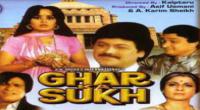
Muskaan Full HD Movie Download

Nuvvu Vasthavani Full HD Movie Download
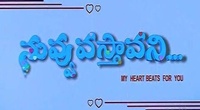
Singhasan Full HD Movie Download
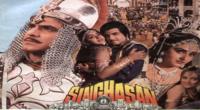
Half Ticket Full HD Movie Download
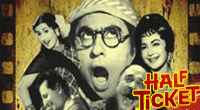
Mr Bechara Full HD Movie Download

Sanam Bewafa Full HD Movie Download
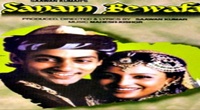
Aamir Full HD Movie Download
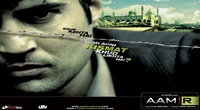
Ganga Aur Suraj Full HD Movie Download
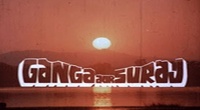
Sikandar (2009) Full HD Movie Download
.jpg)
Aastha: In The Prison Of Spring Full HD Movie Download
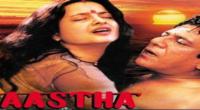
Saving Private Ryan Full HD Movie Download
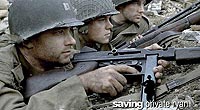
Krishnan Love Story Full HD Movie Download

Hot Malaika Full HD Movie Download
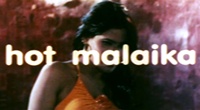
Seven Full HD Movie Download

Bhale Krishnadu Full HD Movie Download
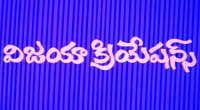
Seetha Kalyanam Full HD Movie Download
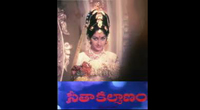
Iddaru Mitrulu Full HD Movie Download
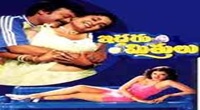
Nijam Chepite Nerama Full HD Movie Download
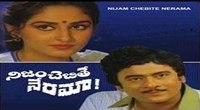
Anand Ashram Full HD Movie Download
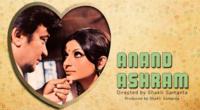
Geetanjali Full HD Movie Download
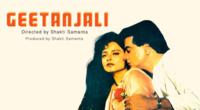
Download latest Movie from bollywood
- 1> baaghi 3
- 2> THE SKY IS PINK MOVIE FULL STORY AND REVIEW
- 3> Luka Chuppi
- 4> TO ALL THE BOYS I’VE LOVED BEFORE
- 5> Kabir Singh
- 6> Street Dancer 3D
- 7> Simmba
- 8> Gone Girl
- 9> The Girl Who Lived
- 10> Ludo
- 11> DILWALE DULHANIA LE JAYENGE
- 12> GUILTY
- 13> The Godfather
- 14> Adventures of Rusty
- 15> Sooryavanshi
- 16> Satyameva Jayate 2
- 17> Thappad
- 18> Bhool Bhulaiyaa 2
- 19> KGFChapter 2
- 20> Mardaani 2
- 21> Pinjar
- 22> Shivaji maharaj
- 23> Ek Villian 2
- 24> Hungama 2
- 25> Divergent
- 26> Mumbai Saga
- 27> The Internship
- 28> HIT (telugu)
- 29> Panga
- 30> The perfect date
- 31> 16 December
- 32> Gopala Gopala (Telugu)
- 33> Brahmastra
- 34> Gangubai Kathiawadi
- 35> Manmadhudu
- 36> Nenu local
- 37> Mahanati
- 38> Shatamanam bavathi
- 39> Lagaan
- 40> After
- 41> MOM
- 42> Shamshera
- 43> Raguvaran BTech
- 44> Khakee
- 45> The villain
- 46> OM
- 47> Mr. perfect
- 48> Bueatifull mind
- 49> Hichki
- 50> Gabbar Singh
- 51> Jogi
- 52> Before Sunrise
- 53> Before Sunset
- 54> Before Midnight
- 55> The Big Bull
- 56> Top Gun: Maverick
- 57> The Purge
- 58> The Sky is Pink
- 59> Laxmmi Bomb
- 60> Sadak 2
- 61> Sufna
- 62> Prithviraj
- 63> PK
- 64> Coolie No 1(2020)
- 65> Black Widow
- 66> Dear Zindagi
- 67> Dil Bechara
- 68> PHIR HERA PHERI
- 69> WAR
- 70> Dostana
- 71> RRR: Roudram Ranam Rudhiram
- 72> Maidan
- 73> Dabbang 3
- 74> Chhalaang
- 75> life as we know it
- 76> SherShaah
- 77> Sandeep Aur Pinky Faraar
- 78> Event Horizon
- 79> 83
- 80> Radhe: Your Most Wanted Bhai
- 81> Gunjan Saxena: The Kargil Girl
- 82> Mr India
- 83> Vivah
- 84> Anokha Bandhan
- 85> Ghost
- 86> Bhoot: Part One - The Haunted Ship
- 87> Haseen Dilruba
- 88> Laal Singh Chaddha
- 89> Qismat
- 90> Rajput
- 91> Drive
- 92> Dil Chahta Hai
- 93> Dil Ki Baazi
- 94> Dil Ka Rishta
- 95> Teesri Manzil
- 96> Dil
- 97> Love Aaj Kal
- 98> Khaali Peeli
- 99> Bunty Aur Babli 2
- 100> Atrangi Re
- 101> Gulabo Sitabo
- 102> Jodi
- 103> Suraj Pe Mangal Bhari
- 104> Deewana
- 105> Attack
- 106> Sardar Udham Singh
- 107> Toofan
- 108> THE LOVEBIRDS
- 109> Jersey
- 110> Ginny Weds Sunny
- 111> Thalaivi
- 112> Shiddat
- 113> Angels vs Zombies
- 114> Koi Mil Gya
- 115> Thank God
- 116> Bhuj: The Pride of India
- 117> Hum Aapke Hain Kaun
- 118> The Platform
- 119> Bird Box
- 120> Roohi Afzana
- 121> Torbaaz
- 122> Nikamma
- 123> World War Z
- 124> Extraction
- 125> Train to Busan
- 126> Life of Pi
- 127> SHAADI MEIN JROOR AANA
- 128> Himmat Aur Mehnat
- 129> To All The Boys: P.S. I Still Love You
- 130> Mimi
- 131> Good Newwz
- 132> Shubh Mangal Zyada Saavdhan
- 133> Raabta
- 134> Harry Potter and the Philosopher's Stone
- 135> Harry Potter and the Chamber of Secrets
- 136> Chhapaak
- 137> War of the Worlds
- 138> Harry Potter and the Prisoner of Azkaban
- 139> Harry Potter and the Goblet of Fire
- 140> MURDER MYSTERY
- 141> Shakuntala Devi
- 142> Bachchan Pandey
- 143> Jayeshbhai Jordar
- 144> Sheer Qorma
- 145> Saina
- 146> 'O' Pushpa I hate tears
- 147> Kedarnath
- 148> MS Dhoni The Untold Story
- 149> Chhichhore
- 150> Badhaai Ho
- 151> Unstoppable
- 152> Oz the Great And Powerful
- 153> The Girl on the Train
- 154> Haathi Mere Saathi 2020
- 155> The Conjuring: The Devil Made Me Do It
- 156> Gandhi Se Pehle Gandhi
- 157> The Song of Scorpions
- 158> Srimanthudu
- 159> Hello Guru Prema Kosame
- 160> Beauty and The Beast
- 161> Black Panther
- 162> Charlie and the Chocolate Factory
- 163> Bole Chudiyan
- 164> Fidaa
- 165> Duvvada Jagannadham
- 166> Bruce Lee: The Fighter
- 167> Hyper
- 168> Yaara
- 169> Red (2020)
- 170> Shivam
- 171> That Is Mahalakshmi
- 172> Nishabdham
- 173> Aashram 2020 web series
- 174> Laxmii
- 175> Mismatched
- 176> STUDENT OF THE YEAR 2
- 177> NAIL POLISH
- 178> Ramprasad Ki Tehrvi
- 179> KAAGAZ
- 180> 12 o Clock
- 181> The Power
- 182> bolo hau
- 183> Tribhanga
- 184> JAMUN
- 185> Madam Chief Minister
- 186> Maasaab
- 187> Aadhaar
- 188> Tanhaji
- 189> Bhaagi 3
- 190> Bhootnath
- 191> MALANG
- 192> Jai Mummy Di
- 193> Haathi Mere Saathi 2021
- 194> Shakeela
- 195> Unpaused
- 196> Annayya
- 197> Vamsoddharakudu
- 198> Mrugaraju
- 199> Narasimha Naidu
- 200> Sankranti
- 201> Manasu Maata Vinadhu
- 202> Anjaane
- 203> Apaharan
- 204> Bachke Rehna Re Baba
- 205> Bewafaa
- 206> Roohi
- 207> Radhe
- 208> Zindagi Khoobsoorat Hai
- 209> Yeh Mohabbat Hai
- 210> Yeh Kya Ho Raha Hai?
- 211> The Tomorrow War
- 212> DehradunDiary
- 213> Meri Shaadi Karaoo
- 214> Matruu Ki Bijlee Ka Mandola
- 215> No One Killed Jesica
- 216> Aag Ka Goola
- 217> Eight Million Dollars
- 218> Three Hundred
- 219> Cats and Dog
- 220> Decoy
- 221> Gold Rush
- 222> You Have Got Mail
- 223> Final Destination three
- 224> Tofan
- 225> Jungle
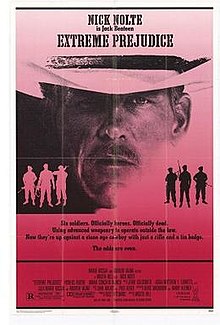 Story of movie Extreme Prejudice Film :
Story of movie Extreme Prejudice Film : 